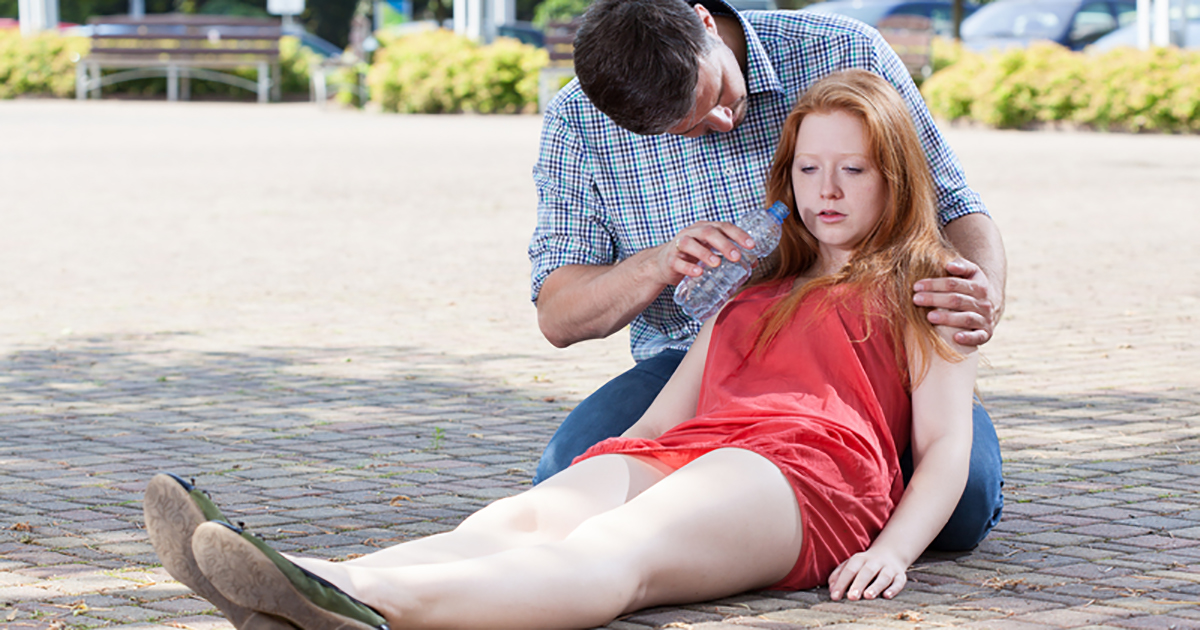Warning Signs Of Orthostatic Intolerance
Orthostatic intolerance is a condition that occurs when an individual is standing upright and develops certain negative symptoms. There are many reasons why orthostatic intolerance may occur, and therefore there are many types of the condition. Orthostatic intolerance can be categorized into two groups: acute and chronic. Sufferers of acute orthostatic intolerance experience symptoms for a limited amount of time and recover quickly. Acute orthostatic intolerance is associated with temporary issues, like mild dehydration. Those with the chronic form experience long-term symptoms that can last for days. Chronic orthostatic intolerance could indicate a serious underlying problem occurring in the body. If these symptoms are felt, visiting a doctor for further assessment is recommended. Uncover the warning signs of orthostatic intolerance now.
Dizziness And Lightheadedness

Postural hypotension, also known as orthostatic hypotension, is a major culprit for feelings of dizziness and lightheadedness. When an individual sits or stands up suddenly from a supine position and feels disorientated, it is caused by a blood pressure drop in the body. This drop in blood pressure occurs when the body is at rest for an extended period and the blood in the lower extremities form a pool there. This ultimately results in a delayed cardiac output and drastically lowered arterial pressure. With all the blood in the lower extremities, there isn't enough blood circulating in the upper part of the body, and the unequal levels of distribution can cause feelings of lightheadedness. Women who just gave birth, the elderly, and those on continual bedrest are susceptible to feelings of dizziness caused by postural hypotension.
Blurry Vision

Blurry vision is the condition where an individual's eyesight is obscured and unclear. It can affect part of the eye or both eyes in its totality. When an individual experiences orthostatic intolerance, the supply of blood in the brain can decrease due to the uneven distribution of blood flow. As a result, the brain will briefly be cut off from oxygen, and this will affect the neurons responsible for vision. Issues with vision may include blurriness, double vision, and some loss of the visual field. Since the brain is very sensitive, other parts of the body can suffer if the brain lacks what is needed to stay healthy. Age is also a factor in the development of orthostatic intolerance related eye impairments. Older individuals are more likely to suffer from impaired vision.
Confusion

Dysfunctions in the autonomic nervous system cause orthostatic intolerance. The autonomic nervous system has several important responsibilities. It helps monitor body temperature, digestion, heart rate, and basic brain functions. The autonomic nervous system establishes a relationship between the brain and several different parts of the body, like the heart, liver, skin and sweat glands. When the autonomic nervous system is adversely affected by underlying issues, cognitive functions could be vastly impacted as well. Mental clarity and acuity are compromised and as a result confusion and disorientation set in. Elderly individuals are more likely than their younger counterparts to experience disorientation and impaired thinking.
Fainting

Fainting, sometimes called syncope, is the process of temporarily losing consciousness. The fluctuation of blood pressure in an already decreased blood supply to the brain causes the individual to experience a brief blackout. Losing consciousness is a common symptom of orthostatic intolerance and has many triggers, including staying in an upright position for an extended period, being exposed to emotionally traumatizing and stress-inducing events (like seeing blood or something scary), being in an overly warm or crowded environment for a prolonged period, and insufficient fluid and salt intake. Being conscious of these triggers will reduce the likelihood of blacking out.
Weakness

The feeling of weakness includes generalized frailty in the body, fatigue that doesn't go away even after a good night's rest, and buckling of the legs. There are potentially serious complications of feebleness caused by orthostatic intolerance because they can lead an individual to fall and have an accident. The fall could result in broken bones and other physical bodily damage. The lightheadedness caused by orthostatic intolerance can also contribute to the body feeling weak and unbalanced. Orthostatic intolerance can cause mild dehydration in the body, which contributes to bodily instability as well. Be sure to get plenty of fluids to decrease the indisposition that afflicts the body.
